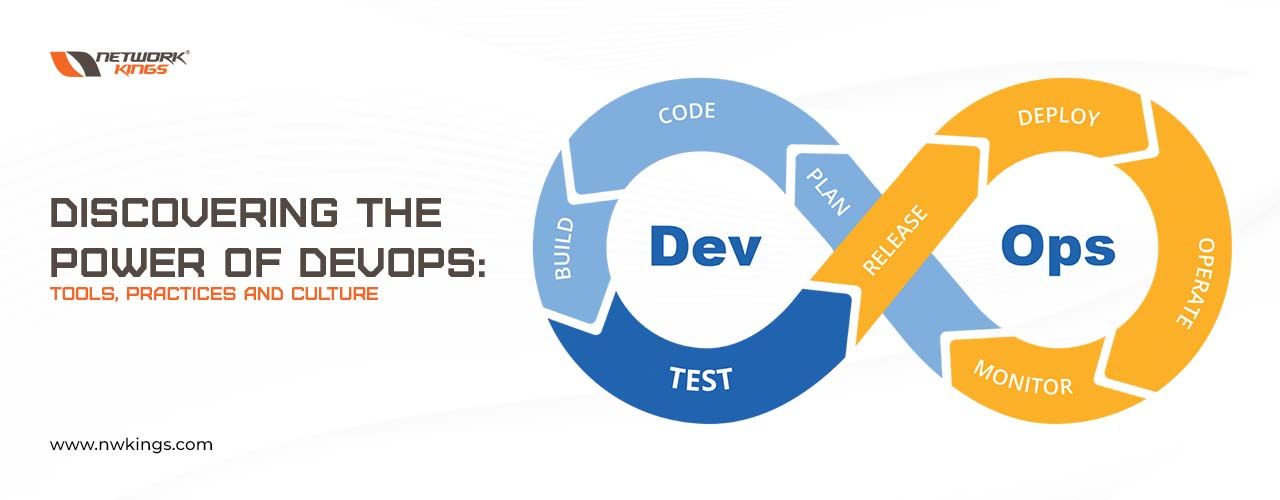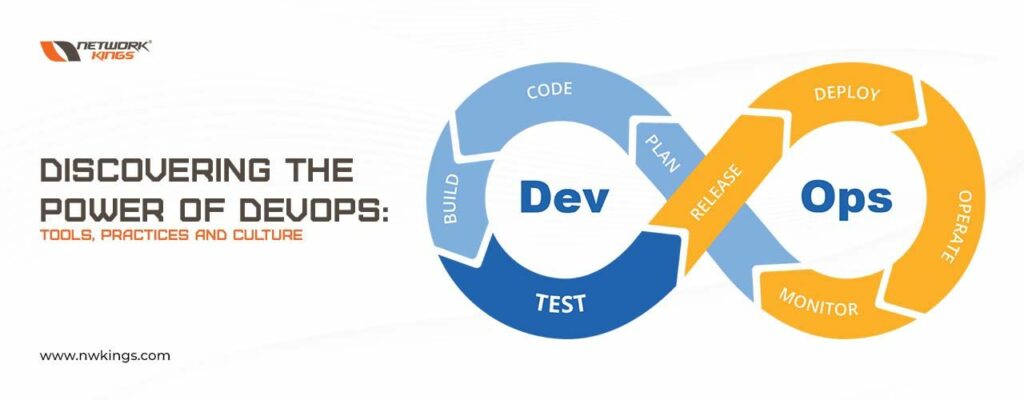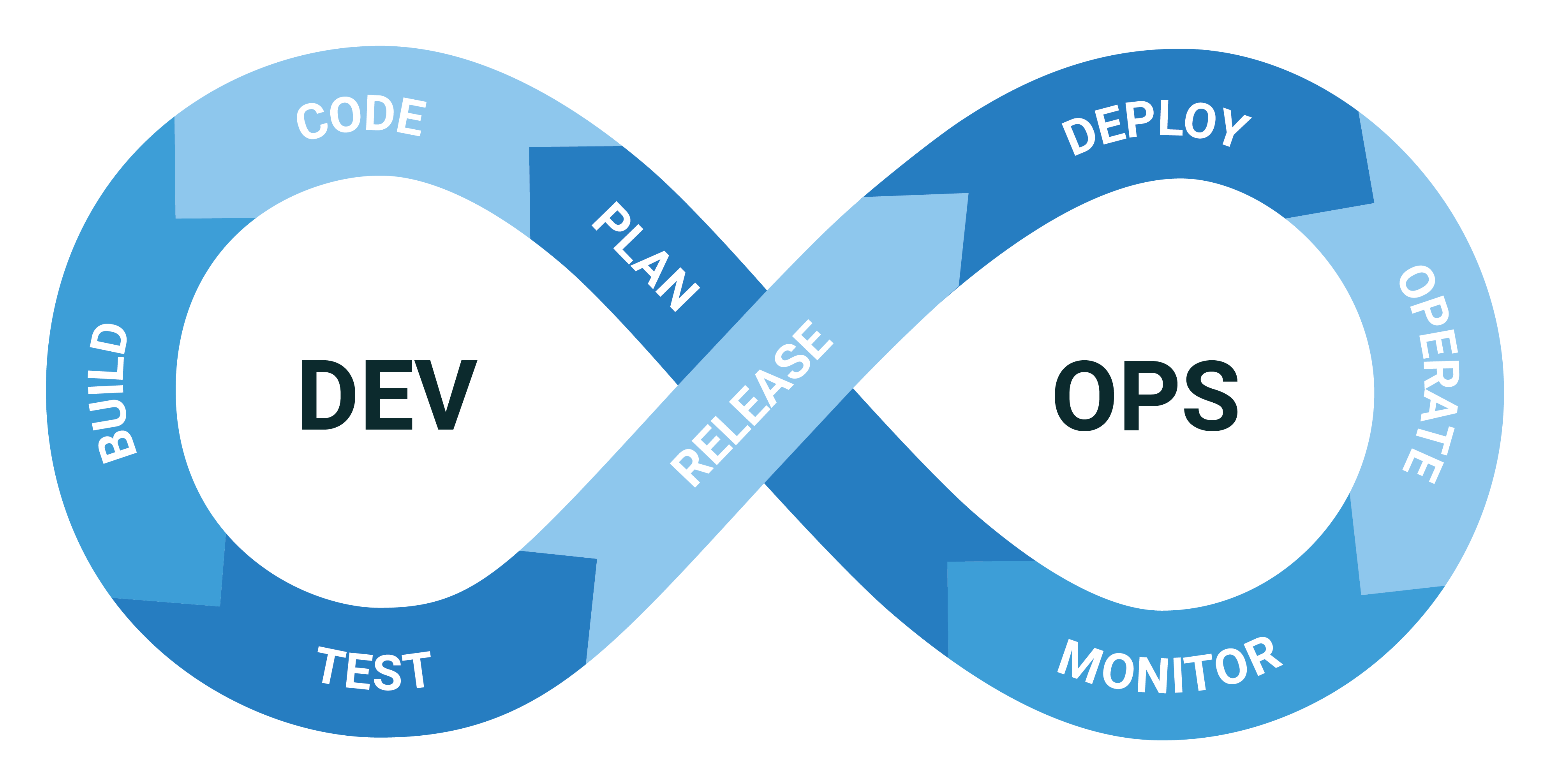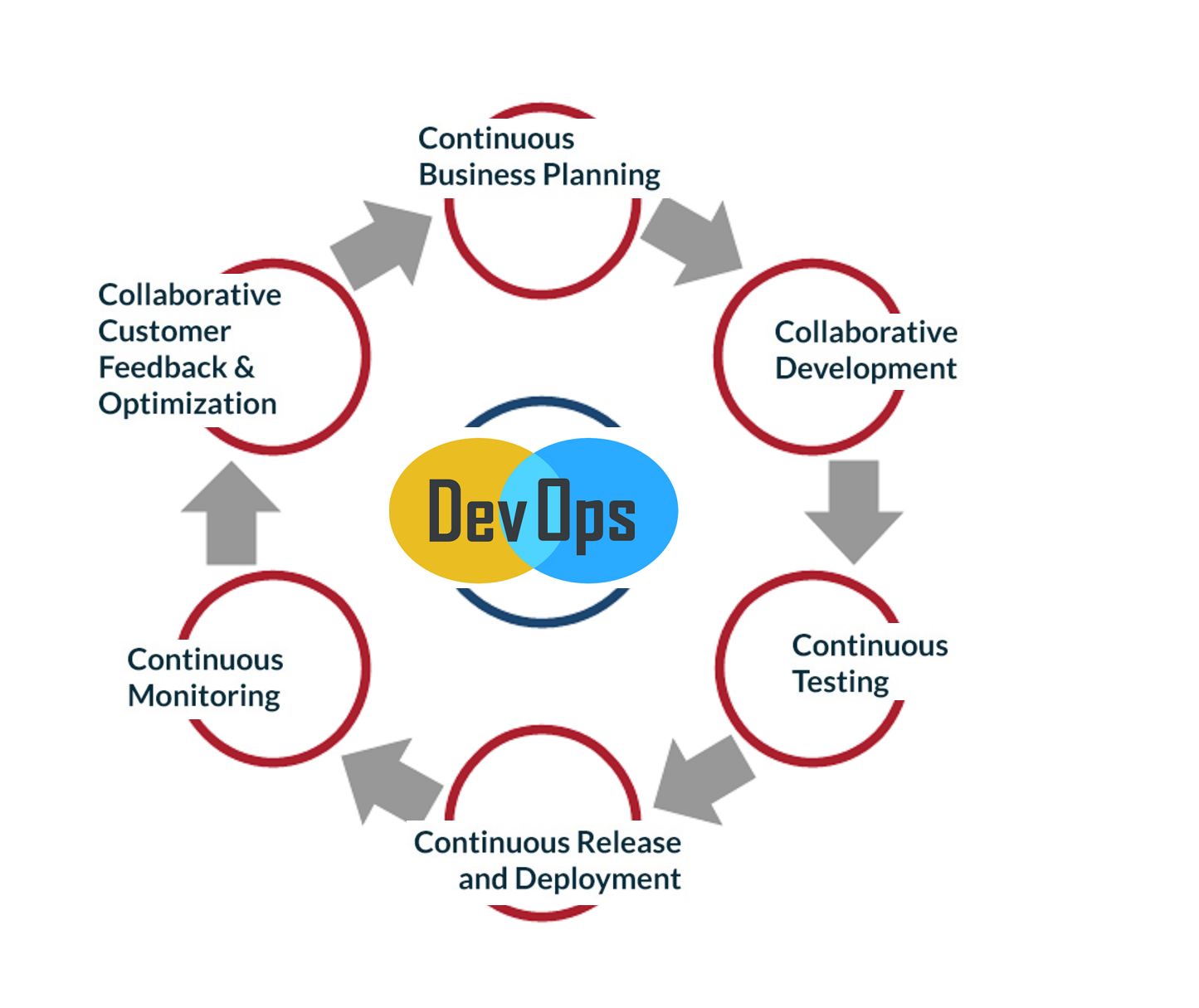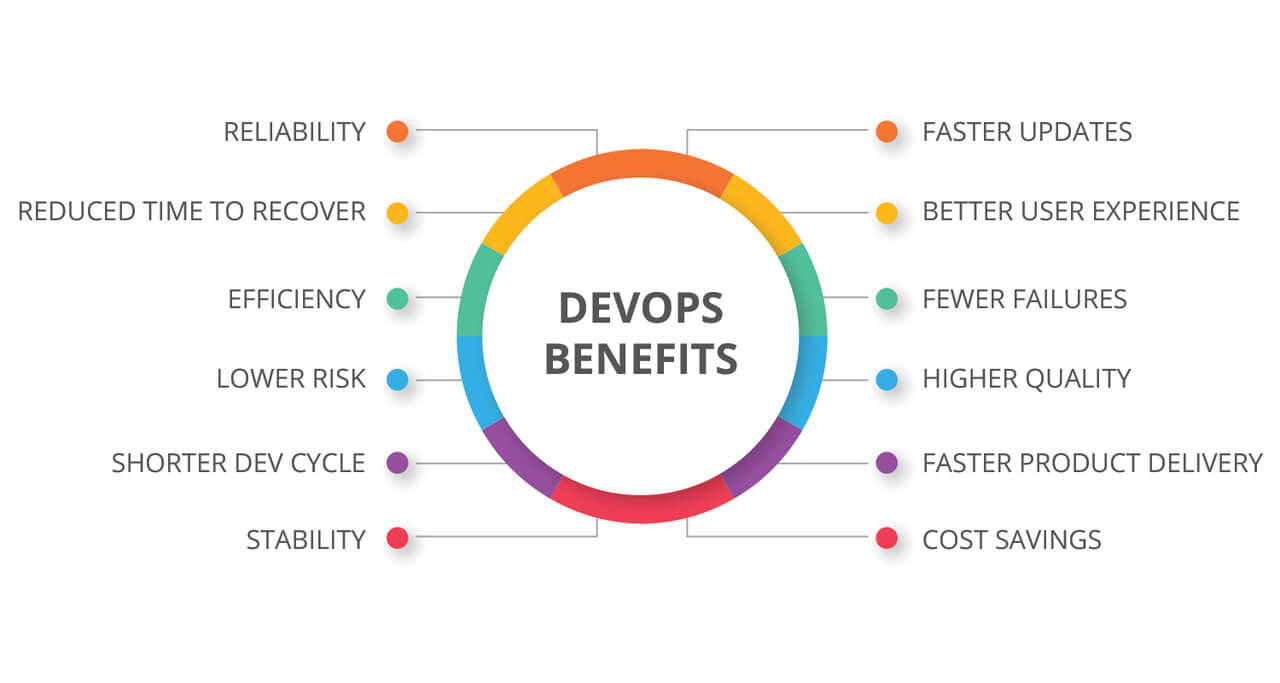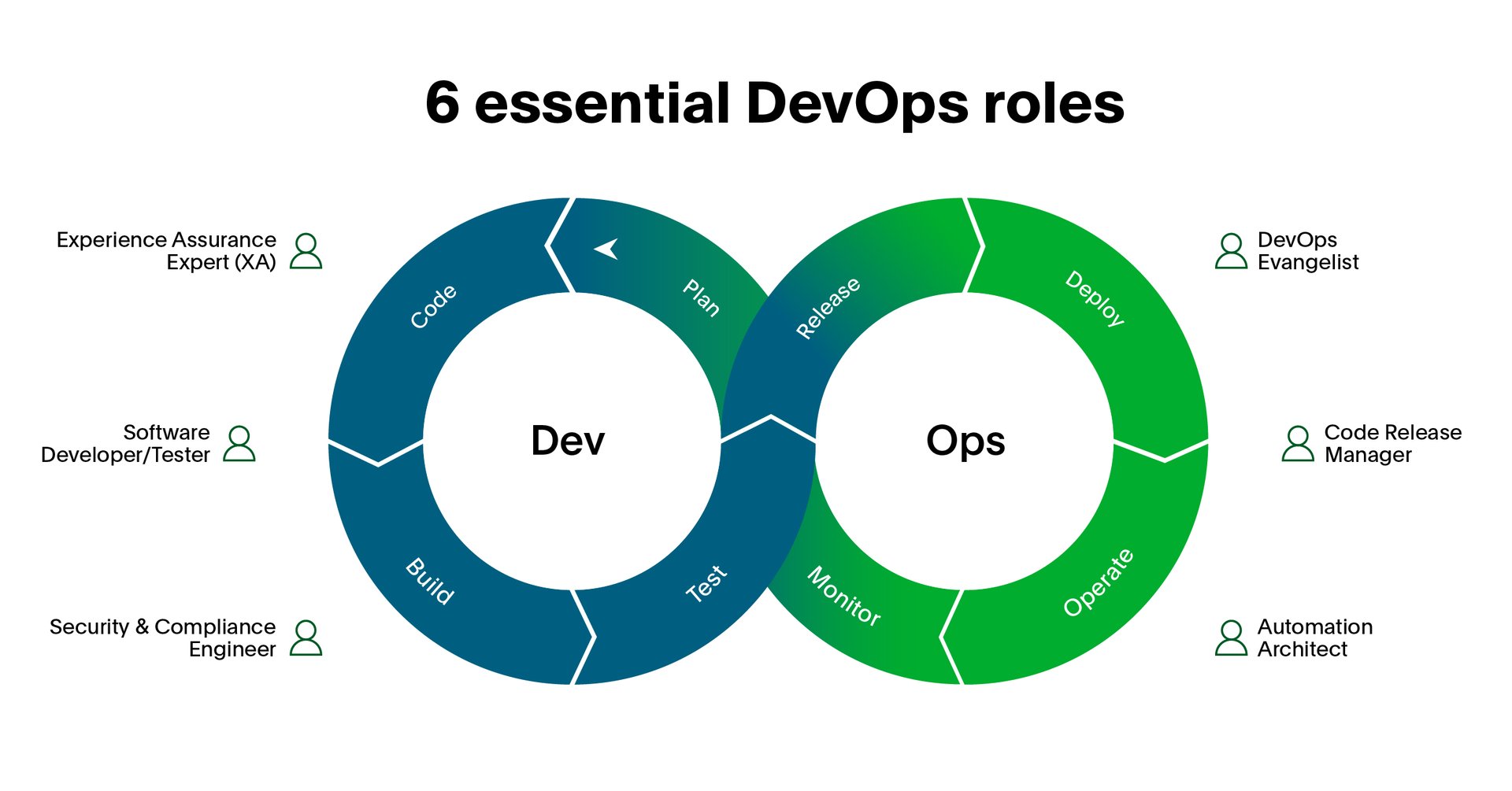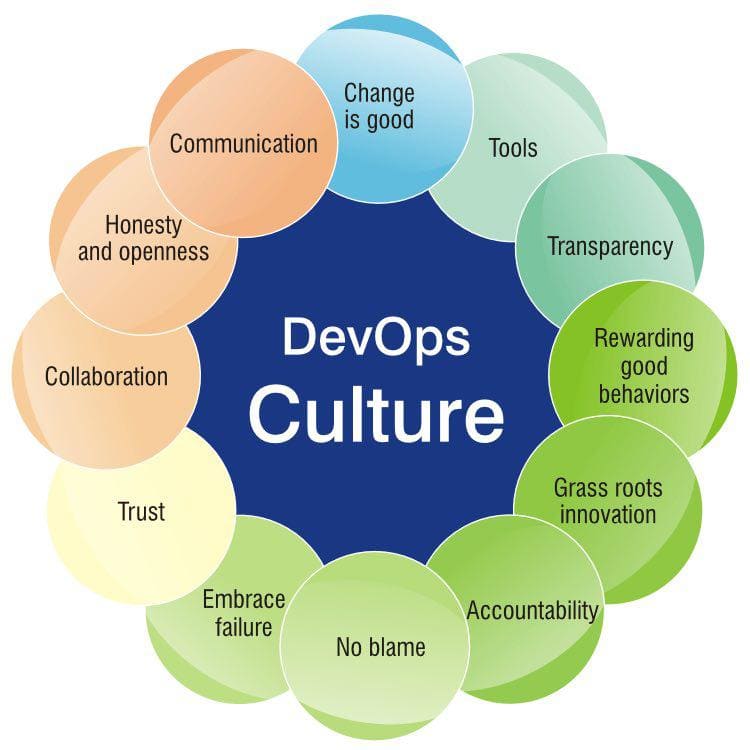
What skills are required for a DevOps engineer – to know the answer in detail, keep reading the blog till the end. Are you eyeing a career as a DevOps engineer and want to know what DevOps skills you need? This blog will take a look at the different competencies required of an impressive DevOps professional. We will explore technical knowledge, automation tools, cloud computing, and infrastructure management – all essential for success in this role.
Understanding these abilities can make sure that your CV stands out from the crowd when applying for any DevOps engineering job opening. So if now is the time for you to add some serious clout to your DevOps credentials then carry on reading!
Understanding the Basics of DevOps Skills
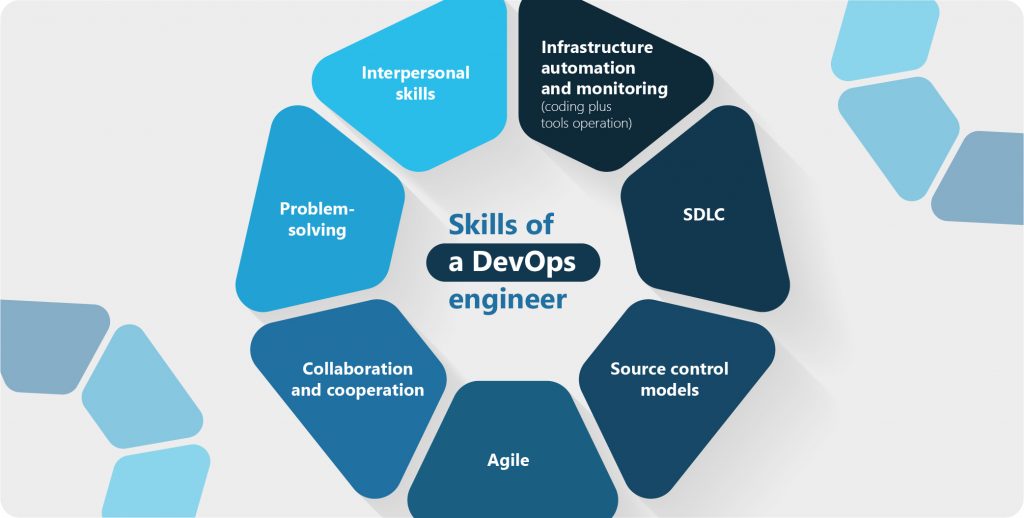
For anyone wanting to become a DevOps engineer, it is vital that they have a thorough understanding of the basics before anything else. After all, having an excellent command over fundamentals is paramount for any successful career in DevOps. But what precisely are the core abilities that one would need? Let us take an intensive look at some of the DevOps skills required for success in this area. One thing you will definitely need if you want to be a top-level DevOps engineer is proper knowledge about coding and scripting languages – how can someone create useful applications without them?!
It is super important to be able to understand code written by other engineers and then have the ability to customize it or write your own, depending on what you need for a specific task. Languages like Java, Python, C#, and JavaScript are very often used but sometimes there could also be another language necessary due to the project requirements. It is always beneficial when you know more than one programming language as well as being comfortable with debugging scripts in case any issue appears during the development process.
Apart from that system administration turns out to be an essential skill every DevOps engineer must possess too. How many languages do I actually need in order for me to become a successful DevOps engineer? That is something worth thinking about!
Having an understanding of the core technical components that go into developing and deploying software is essential for a DevOps engineer. This includes having the ability to manage servers, set up networks and identify any issues which may arise whilst running systems. It is vital to be able to check performance levels or spot problems fast, as this can play a key role in preventing downtime caused by tech-related troubles – mastering these skills could make all the difference when it comes to keeping everything ticking over smoothly.
What’s more, knowing about automation tools such as Bash scripting and Ansible playbooks are great resources for dealing with complex tasks swiftly yet carefully; they are also useful if you want to deploy applications or services quickly without skimping on safety and quality standards – plus no manual labor needed! Automation provides greater control while minimizing errors during development cycles or deployments: giving engineers faster feedback loops so any unanticipated blips can be ironed out without long delays and frustration.
The Importance of Technical Expertise in DevOps

It is clear that having a deep understanding of the principles behind DevOps is essential for any successful engineer. But how do you measure whether someone has what it takes to be an effective team member?
Well, it goes without saying that experience matters here too. Candidates who have worked with numerous teams on different types of projects will likely bring valuable perspectives to your project; they won’t just know the tasks associated with their role but also understand how those fit into the larger goals of a company or organization.
It is important to look at past accomplishments when assessing candidates in addition to technical skills so as not to get caught up only in language proficiency tests and similar assessments which may not provide much insight into actual capabilities.
No doubt about it – expertise in developing software applications using industry-standard methodologies such as Agile or Scrum are invaluable attributes for anyone looking to become part of a DevOps team! What better way could there be than knowing exactly how different parts come together during the development process?
Furthermore, knowledge regarding deployment processes (e.g.” continuing integration pipelines) can go a long way towards ensuring quality results from start to finish! So, if you are recruiting engineers for your DevOps squad then you should definitely take these factors into consideration before making a final decision.
Having a strong grasp of cloud platforms is essential for any DevOps engineer, whether that is Amazon Web Services or Microsoft Azure. This knowledge can be invaluable in helping them diagnose and resolve any issues related to automation and scalability – something that can save organizations lots of time (and money!).
On top of this technical understanding, it is also important for DevOps engineers to possess good communication skills so they are able to work effectively with other members of their team; being able to quickly assess problems and then explain these solutions clearly will help ensure everyone stays on the same page. Lastly, having great leadership abilities could make all the difference when things get tough – encouraging others during challenging times helps keep morale high!
Ultimately, having knowledge of the various DevOps tools used in software development is essential for all DevOps engineers as it allows them to automate processes quicker and ensure that deployments happen without any issues. It would be hugely advantageous if they have had experience with automation frameworks such as Puppet or Chef since these can really speed up the deployment process whilst reducing time spent on manual tasks like provisioning resources or configuring servers.
To sum things up, a technical skillset is one of the most important qualities for a potential DevOps engineer considering their job requires a broad range of abilities including programming languages along with collaboration tools. Additionally, communication capabilities are also necessary for effective cooperation between crew members whereas using automated frameworks can massively enhance productivity via automation methods.
In conclusion, mastery over all areas discussed above is absolutely indispensable for anyone aspiring to pursue a career in DevOps engineering!
The Role of Automation Tools in a DevOps Engineer's Skillset
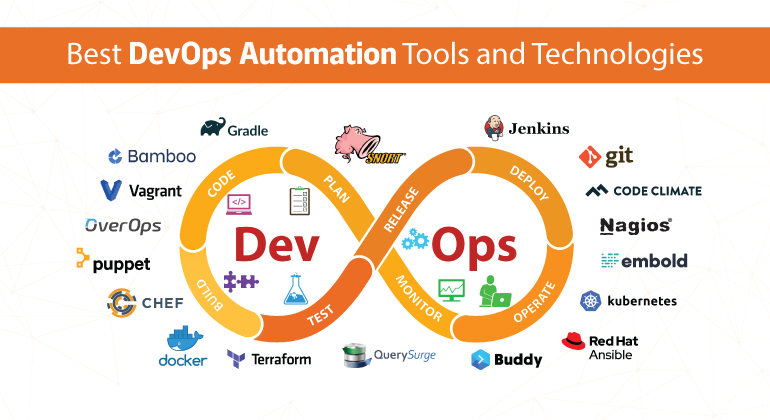
Working in the DevOps field requires some serious technical knowledge. Automation tools are essential for any decent DevOps engineer, allowing them to write scripts that can automate tasks such as deployment and configuration; plus, they speed up development cycles and reduce risk associated with manual operations – enabling teams to work together more easily. How cool is that?
What’s more, automation tools give DevOps engineers the required visibility into how their system is doing so they can assess data and pinpoint any problems. For instance, automation tools have live tracking features that allow DevOps professionals to monitor metrics of performance such as uptime, throughput, and latency which helps them figure out where there might be room for improvement or optimization.
Plus, many automation tools come with built-in reporting capabilities meaning these engineers are able to produce reports based on the systems’ performances enabling them to spot trends over time.
Automation tools make it simpler for DevOps engineers to keep their systems up-to-date with the most recent features and essential security fixes without having to manually administer the procedure themselves. By automating these processes, they save time by not needing to physically deploy updates every single time a fresh edition of a service becomes available or when an important security patch requires implementation immediately.
Clearly, understanding various automation instruments is vital for any hopeful or professional DevOps engineer. Automation has become an integral part of contemporary IT networks and is growing in relevance as organizations shift towards digital transformation projects while concentrating on improving productivity through automated procedures. Is this really necessary? Can’t manual labour do wonders too?
Exploring Cloud Computing as a Crucial DevOps Skill
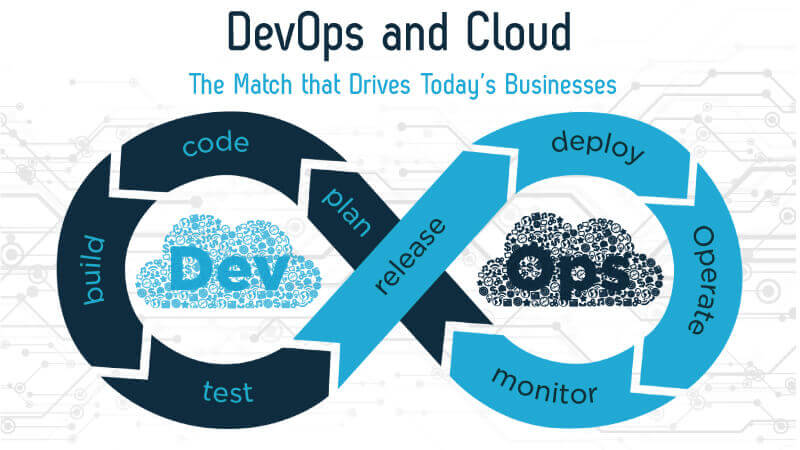
Cloud computing has transmogrified into a prerequisite expertise for DevOps engineers. It is no longer incidental, but an essential part of the DevOps engineer’s toolbox. As more companies are shifting their operations to the cloud, DevOps specialists need to be able to comprehend and employ technologies like AWS, Azure, and Google Cloud Platform so they can manage their projects deftly. Are you up-to-date with all these techs? Can this help your career progress?
Cloud computing covers a wide range of services but, fundamentally, it involves transferring data storage and processing away from an in-house server or dedicated infrastructure to another provider such as one of the big cloud companies. This helps businesses focus on their core strengths while still taking advantage of all the latest technology advances. Take DevOps for instance; with cloud computing, they are able to quickly build virtual testing environments so that code can be tested before going live – how cool is that?
By tapping into the potential of cloud computing, DevOps engineers can ensure that customers get more reliable quality assurance and faster delivery times. Not only this but they are able to take advantage of scalability features such as auto-scaling provided by these services which makes it possible for servers to run optimally regardless of traffic levels. What’s even better – some platforms offer additional services like media streaming or analytics which would have required complex custom software development normally, meaning costs over time will be significantly lower than with traditional methods.
All in all, this eliminates any downtime caused due to deployment issues while also reducing risk since code testing won’t consume valuable resources on existing systems anymore. Moreover, now developers have access to quickly spin up new instances when needed rather than waiting weeks or months for hardware turnarounds/acquisitions like before – making use of Amazon Web Services or Microsoft Azure being two examples here (others exist too!).
Infrastructure Management for a DevOps Engineer

Being a DevOps engineer demands an extensive range of skills, specifically when it comes to infrastructure control. This is the backbone for any system or application that will be built in this kind of environment. It is essential to have knowledge of how infrastructure links with different stages in the DevOps process and comprehend all its components being related one way or another. Infrastructure management necessitates engineers educated enough not only about network architecture but also server setting-up, virtualization technology used, and cloud computing technologies applied; storage systems, as well as monitoring solutions, are no exception either! Have you got what it takes?
It is essential to secure and optimize all these elements in order for applications to run seamlessly and securely. Communication is a major part of this role, too; being an accomplished DevOps engineer means working with other teams such as developers and operations specialists so that each component functions correctly while keeping business objectives in mind. This requires understanding what the user wants from their system, and assessing if it works within current architecture parameters before then determining how best to obtain desired results without disrupting any services already up and running.
Besides possessing communication abilities, present-day DevOps engineers must also be proficient in scripting languages employed for automation objectives (such as Python) to enable them to write scripts that will swiftly test and deploy code without necessitating manual intervention. This ensures it is much easier to manage a wide range of systems from one place whilst at the same time upholding quality standards. Furthermore, being familiar with containerization technology (like Docker) implies that engineers can construct intricate applications more efficiently by using isolated components or ‘containers’.
In summation, becoming an accomplished DevOps engineer involves knowledge in both computer programming and architecture design aspects along with soft skills such as competent communication and problem-solving capabilities. Whilst there isn’t just one particular skill set suitable for any organization or position specifically, having expertise across many fields associated with infrastructure management provides contenders with an edge when vying for this role.
Core Technical Expertise Required for DevOps Engineers

When it comes to working in tech fields like DevOps, there is a core set of technical expertise you need for success. It may vary from company to company what skills are required for this role, however, certain fundamentals stay the same – good coding abilities, server and database management understanding, and familiarity with cloud architecture along with knowledge of various coding languages. To really hit it outta the park though one thing is needed above all else: object-oriented programming (OOP) know-how! This isn’t just important but essential if you want to make your career as a DevOps engineer soar. Have you already mastered OOP? If not, then get learning right away – no excuses allowed!
Object-oriented programming (OOP) is used widely by developers all around the globe as it makes the design and organization of code a lot simpler. It is vital for any DevOps engineer who wants to manage data proficiently; lacking intensive knowledge about OOP fundamentals can make tasks intricate when intricacy increases. Additionally, having the capability to write accurate codes rapidly will provide engineers with a crucial advantage when they have to deploy applications at speed and efficiency. When it comes down to options selecting Linux servers presents great scalability pros – something most companies have searched out in recent times.
Linux servers are great for businesses, especially ones dealing with high traffic. Not only do they handle loads well, but also require less maintenance than other server types – meaning fewer downtimes and headaches for the business owner! Any DevOps engineer worth their salt should have experience setting up Linux servers in order to ensure an organization’s systems run as efficiently as possible. This means having a good understanding of scripting languages such as Bash or Python so processes can be automated; leading to quicker development cycles and more streamlined deployments overall. But isn’t it amazing what these machines can achieve?
Cloud computing has revolutionized the way businesses host their IT infrastructure and applications – instead of managing all that hardware on-site, companies can now turn to cloud vendors like Amazon Web Services or Google Cloud Platform for reliable scalability options which are not too expensive nor require a massive amount of time investment. As such, having an understanding of how different cloud architectures work would benefit DevOps engineers in knowing exactly how to configure systems so they run optimally within these environments with negligible disruption during times when customer demand is highest. That’s where the real challenge lies; finding out ways to regulate usage but without sacrificing performance.
No discussion on DevOps would be done justice without mentioning container technology. This allows apps to get bundled together into ‘containers’ that can run independently from other applications, meaning they don’t need any extra refactoring or tweaking before running on different platforms – this could save devs many hours each time a deployment is made and increase speed-to-market timescales as well as improve reliability levels! For tech ops professionals who wish to stay ahead of the game, mastering how containers work and configuring them for particular environments should be top priorities.
The Need for DevOps Engineers to Understand Automation Tools

DevOps engineering is a rapidly expanding field, so to stay ahead of the competition an engineer must constantly update their skills. Automation tools are essential for any DevOps process and it’s important that engineers have a strong understanding of them. Through automation tools they can create repeatable processes which run without manual intervention; this saves time and money by minimizing human error. To be an effective DevOps engineer, you need more than just surface-level know-how about these automation tools – deep knowledge really counts here! What kind of in-depth awareness do successful DevOps engineers usually possess?
When it comes to DevOps engineers, having a good understanding of automation tools is essential. These could include setting up scripts with Chef or Puppet for configuring servers and managing applications; while Continuous Integration (CI) platforms such as Jenkins can help streamline the build process and ensure code quality too. Version control systems like Git are also key components here as they allow developers to keep track of changes in the code over time – making collaboration between teams that much easier!
But beyond just tech knowledge there’s another important side when it comes to experienced DevOps engineers – what other skills separate them from novices? This includes things such as being able to troubleshoot issues quickly, knowing how different parts of an application integrate together, ensuring scalability across multiple environments, etc – all these abilities show expertise within a role that only experience brings about.
Experienced engineers will have an in-depth understanding of various coding languages such as Python or GoLang, as well as knowledge about the infrastructure needs during application deployment in cloud environments like AWS or Azure. What’s more, they must be excellent problem solvers with quick and efficient debugging capabilities should any issues crop up. It is also essential that developers comprehend how CI/CD pipelines function along with the full development spectrum from testing to release.
Moreover, a decent comprehension of security best practices is necessary for keeping developed solutions safe from malicious attacks or data leakages. All these aptitudes form part of what makes a great DevOps engineer; if you plan on becoming one then possessing them really is non-negotiable!
Delving Deeper into Cloud Computing Skills for DevOps
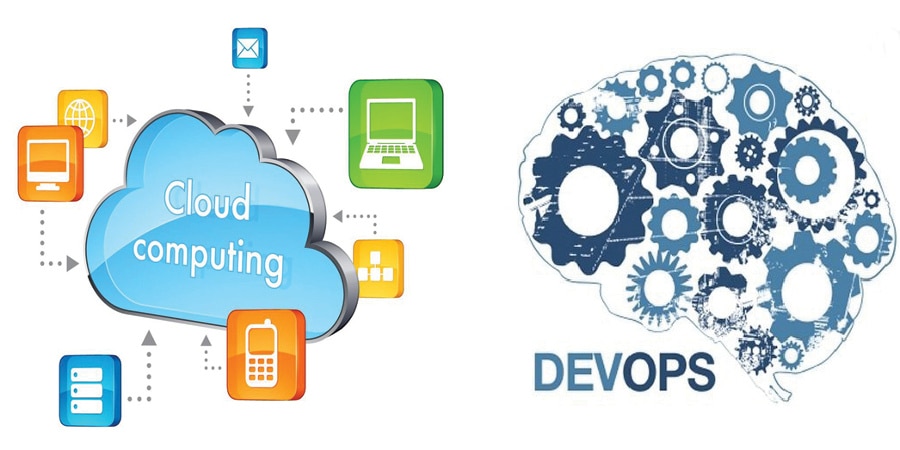
Having a grasp of cloud computing is essential for being an efficient DevOps engineer. Cloud computing has become the go-to solution for many organizations, as it provides adaptability and scalability. But what implications does this have on those who aspire to follow a career in DevOps engineering? Fortunately, if you want to be successful at your job, then having basic knowledge about cloud computing is key.
When considering a cloud technology skillset, it is paramount that a DevOps engineer knows how virtual networks work – plus fundamental concepts such as storage capabilities and compute abilities along with networking expertise! So, really ask yourself: do I possess all these vital skills?
It is essential for DevOps engineers to comprehend how diverse cloud services interlink with each other and how they can be hooked up to a bigger system. What’s more, these professionals need to have command of automation tools such as Chef and Puppet which are implemented to automate systems provisioning and deployment. Do you know that container technologies like Docker or Kubernetes also make it easier for them? Yes, making use of docker containers enables the development teams to quickly construct applications that can be sent out over numerous settings without much hassle!
It is evident that having a thorough grasp of the diverse features of cloud computing is essential for DevOps engineers who are seeking to advance their careers. There certainly are other aptitudes required from a DevOps engineer, like communicating competency and problem-solving skills, however being knowledgeable about cloud computing takes precedence when it comes to succeeding in this profession. Not only will it provide them with the requisite expertise they need but also be beneficial later on during future positions or endeavors where these competencies can come into play.
Finally, they must have an understanding of public cloud services such as Amazon Web Services (AWS), Microsoft Azure, and Google Cloud Platform (GCP). These facilities offer distinctive characteristics and advantages that can aid acceleration of development time while guaranteeing optimum security. Do you think proficiency in all aspects related to the realm of ‘Cloud Computing’ could give your career prospects an edge?
The Significance of Infrastructure Management in DevOps
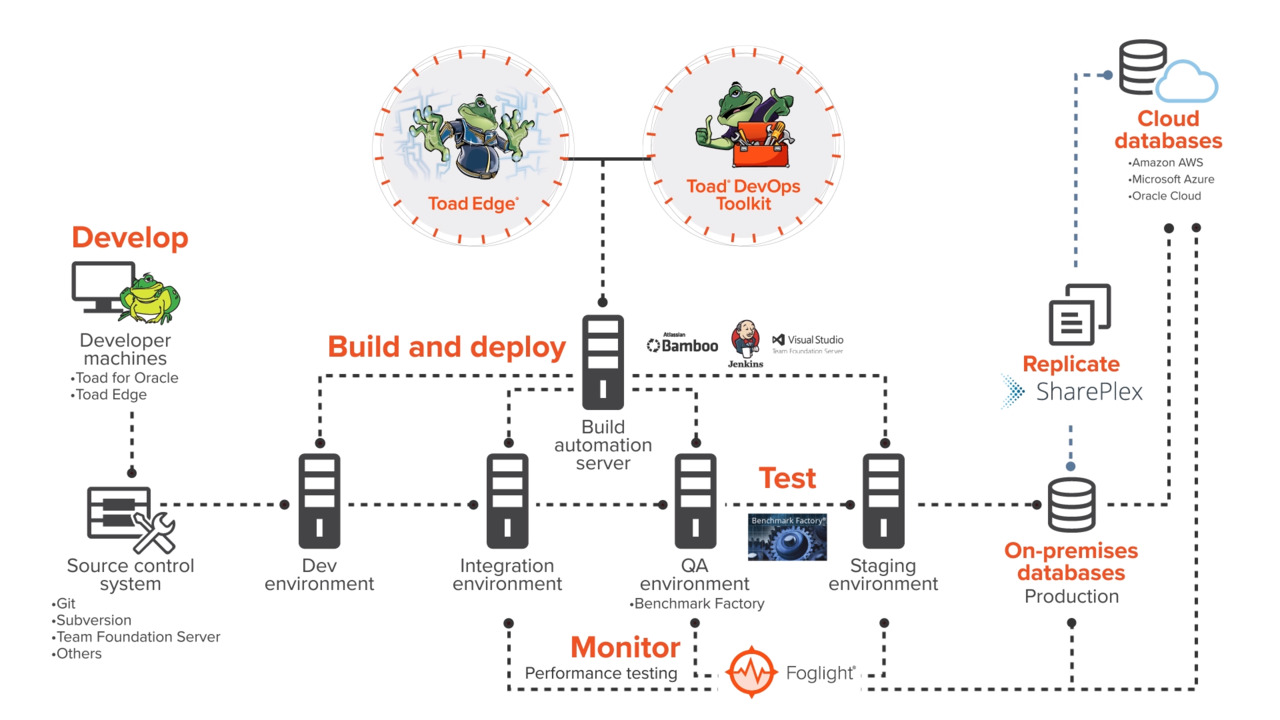
The term ‘DevOps engineer’ is a broad one, encompassing the skills needed for managing and keeping up with business infrastructure. Infrastructure forms an essential part of any DevOps project; you need to know what tools are available as well as how to make good use of them in order to succeed. Maintaining your infrastructure properly is key when it comes to DevOps – this gives the environment required for quickly developing, testing, and releasing applications. By monitoring resources like servers, networks, or databases effectively, engineers can ensure that apps run seamlessly and securely – who wouldn’t want that?
Being a DevOps engineer means you have to know both hardware and software technologies in order to run infrastructure effectively. This could mean knowing all about networking protocols, and firewalls for keeping data safe or deploying virtual machines through cloud platforms like Amazon Web Services and Microsoft Azure. Not only that but understanding containerization technology such as Docker can help with spinning up new development environments quickly and reliably – so it is really handy! Basically, if you are aiming to be an effective DevOps engineer then having good knowledge of both the hardware side but also software is essential too.
Apart from just knowing how to set up an environment for development purposes, DevOps engineers also need to be able to build automation scripts that can monitor services running within their infrastructures. Having the ability to write Bash or PowerShell scripts helps automate regular tasks so that these commands can be run on a continual basis whilst guaranteeing all services are working properly at any time. Knowing about configuration management tools (such as Ansible) will assist considerably while penning automated programs as they permit swifter deployment and process optimization in an IT infrastructure.
Generally speaking, it is plain that infrastructure administration is imperative in any triumphant DevOps workflow. By recognizing how distinct segments relate with each other, DevOps engineers can make sure applications stay secure and current while proffering programmers the suitable atmosphere essential for development intentions.
On top of that, being capable of writing autonomous instructions assists in cutting down errors by making certain procedures go correctly without human input required. With such resources available to them, DevOps engineers have the capability to competently manage their IT frameworks while forming first-class applications speedily! Do you think this would help enhance your own skill set?
Summing Up Essential DevOps Skills for Engineers
As DevOps gets more popular, the skills that engineers need to excel in this role become clear. It isn’t just about technical knowledge but rather a varied set of attributes that allow successful collaboration and automation. Let us take a look at some essential capabilities any aspiring DevOps engineer ought to possess.
The crucial skill any individual keen on becoming great at DevOps should have is an appreciation for software development processes. Understanding these thoroughly is key to making progress with your career as one of those professionals!
In order to be able to manage projects effectively, DevOps engineers must have a thorough understanding and mastery of development tools and concepts such as version control systems, build pipelines, continuous integration, automated testing frameworks as well as source code management. Additionally, they should be capable of recognizing areas that need improvement within the firm’s development process and recommending strategies for making it more efficient.
Communication is another critical skill for DevOps Engineers; not just talking but being able to convey your message in an effective manner so people can understand what you are trying to say – It goes without saying how important this is!
Acting as a bridge between developers and operations teams demands extensive negotiation and problem-solving skills, along with the ability to express complex technical solutions in nontechnical language for stakeholders who might not be technically proficient. It is also important that they are able to interact easily with multiple teams while keeping diplomatic relationships despite any conflicting views or opinions.
Moreover, DevOps engineers need strong scripting/programming capabilities – knowledge of Linux/Unix operating systems is needed alongside expertise in technologies like Bash (Shell) scripting, Python, Javascript, etc so tasks can be automated quickly without repetition plus scaling up operations rapidly when necessary.
Experience introducing containerization technology such as Docker and Kubernetes into cloud infrastructure or deploying applications on virtualized platforms will come in useful too! As part of their job responsibilities, it could even mean developing custom apps or integrations through third-party services which means having a great grasp on application architecture principles plus web service best practices.
Wrapping Up!
In conclusion, to be a successful DevOps engineer, you need strong technical skills in automation tools, cloud computing, and infrastructure management. You should have an understanding of the software development life-cycle, plus customer service best practices too. Crucially, though is the ability to collaborate with different stakeholders within an organization towards one shared goal – it takes great organizational abilities as well as communication prowess and problem-solving attitudes not forgetting passion for working together! In short, these attributes make up a fantastic DevOps engineer.
Sign up now for our DevOps Master Program to get the skills needed to take your IT career a step further. We are offering top training in those technologies that are cutting-edge, from cloud computing to automation and configuring management. Furthermore, there is an abundance of course choices made suitable both for inexperienced people and skilled DevOps professionals alike. Our trainers have spent years working in this sector so you can be positive you will learn the latest practices from them! So don’t hold off any longer – join today! Get mastering all essential DevOps skills with us and give your job prospects a boost right away.
Happy Learning!


